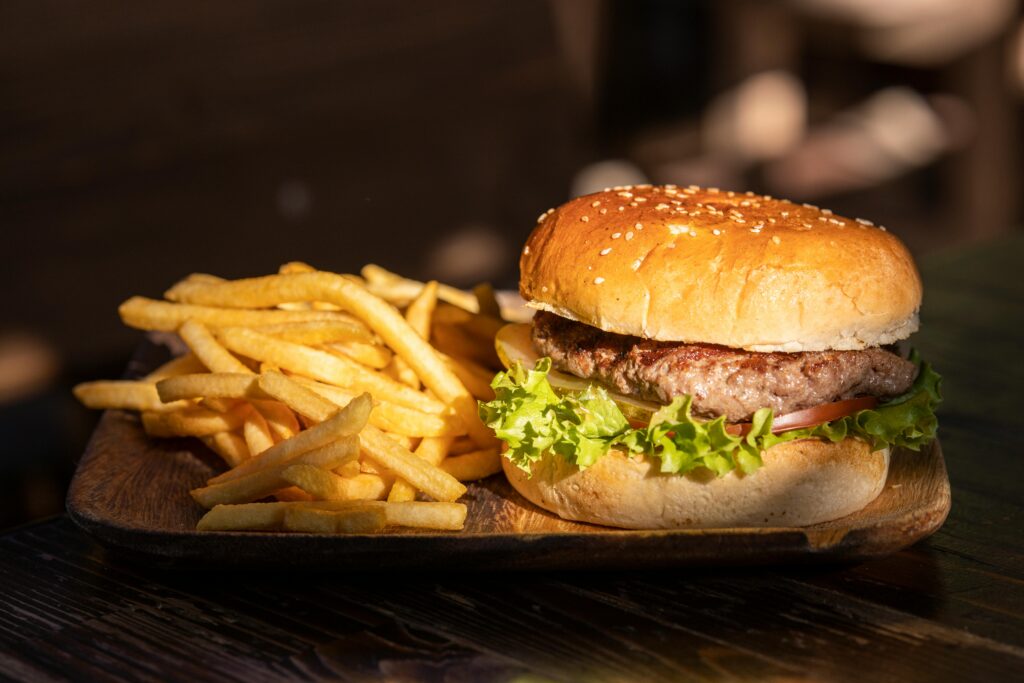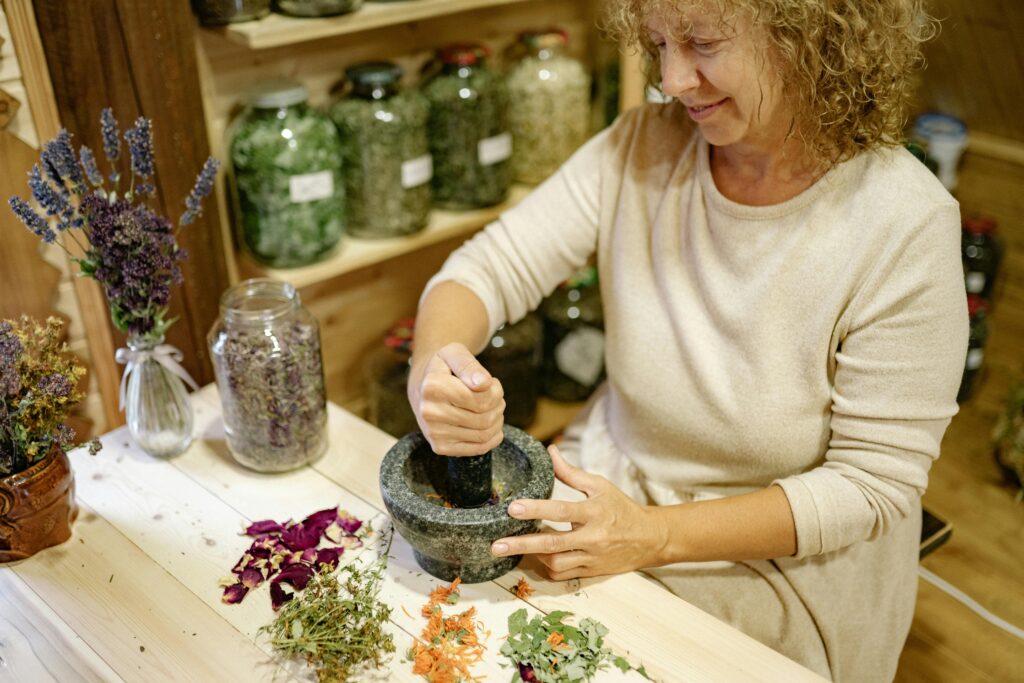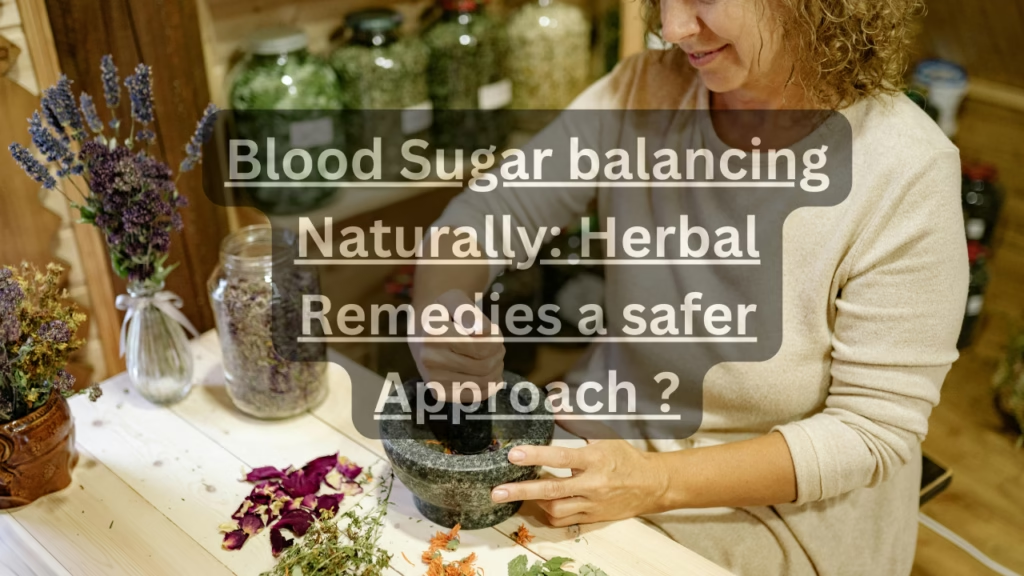Two common blood sugar issues are hyperglycemia (high blood sugar) and hypoglycemia (low blood sugar). Blood sugar, i.e. glucose, is the primary energy source of our body, which is controlled by the insulin hormone. The pancreas makes this insulin. As we grow older, the way glucose is processed also changes and fluctuations in blood sugar can also occur. In this article, we will try to understand the reasons for early and later stages of diabetes, side effects of allopathic (conventional) medicines, and benefits of herbal treatments.
Blood Sugar at Young Age

Causes of High Blood Sugar in Youth
The blood sugar level is stable in childhood and adolescence. But certain lifestyle factors and genetic predispositions can cause young people to have high blood sugar levels or develop diabetes. Some primary reasons are:
1. Diet: Eating too much processed sugars, refined carbohydrates, and unhealthy fats can lead to weight gain and insulin resistance.

2. Lack of physical activity: Sedentary lifestyle (less movement) can lead to weight gain and decreased insulin sensitivity, which can raise blood sugar levels.
3. Stress: Emotional and academic stress can cause the release of cortisol, which raises blood sugar.
4. Genetics: If diabetes runs in the family, young people are more likely to develop insulin resistance and high blood sugar.
Symptoms of Blood Sugar Imbalance in Youth
Early symptoms include excessive thirst, frequent urination, unexplained fatigue, and sudden weight changes. High blood sugar can also affect the focus, academic performance, and mood of young children and teenagers.
Blood Sugar in Later Stages
Reasons for Blood Sugar Imbalance in Old Age
As we age, maintaining stable blood sugar becomes a little challenging. This is due to both physiological and lifestyle factors. Some common reasons are:
1. Decreased Insulin Sensitivity: With aging, cells do not react as effectively to insulin, which causes blood sugar to increase.
2. Pancreatic Function Decline: With age, the pancreas produces less insulin, making it difficult to control glucose levels
3. Increased Abdominal Fat: Hormonal changes cause an increase in abdominal fat, which is linked with insulin resistance.
4. Chronic Health Conditions: High blood pressure, cholesterol issues, and obesity can worsen blood sugar problems.
Symptoms in Older Adults
The symptoms in older adults are more subtle, such as blurry vision, slow wound healing, increased chances of infections, and numbness or tingling in the extremities. If not addressed timely, it can invite complications like kidney disease, heart disease and neuropathy.
Side Effects of Allopathic Medicines
Allopathic (conventional) medicines are effective in managing blood sugar, but they also have side effects, especially if used long-term. Some common side effects are:
1. Gastrointestinal Issues: Medicines like Metformin can cause nausea, diarrhea and stomach pain.
2. Weight Gain: me medicines, particularly insulin injections and sulfonylureas, can increase weight gain, which makes blood sugar management more difficult.
3. Hypoglycemia: Medicines like insulin sometimes reduce blood sugar too much, which can cause hypoglycemia (dangerous condition).
4. Liver and Kidney Strain: Long-term medicine use increases strain on liver and kidneys, which increases the risk of long-term complications.
5. Cardiovascular Risks: Some medicines increase the risk of cardiovascular complications, if there are already underlying conditions.
Due to these side effects, many people prefer herbal medicine and natural approaches for blood sugar management.
Management With Herbal Treatments

Herbal treatments support blood sugar regulation, and have fewer side effects than allopathic medicines. These are not a replacement for allopathic treatment, but can be a beneficial or preventative option. Some effective herbs are:
1. Bitter Melon : This fruit contains insulin-mimicking compounds that naturally help lower blood sugar.
2. Cinnamon : Studies say that cinnamon can improve insulin sensitivity and reduce fasting blood glucose.
3. Fenugreek : It contains soluble fiber that slows digestion and manages blood sugar after meals.
4. Ginseng: Some varieties, especially American ginseng, can reduce post-meal blood sugar.
5. Berberine: Berberine, found in plants like goldenseal, helps control blood sugar and improve insulin sensitivity.
Benefits of Herbal Treatments
Herbal remedies, in general, provide a gentle and natural approach to blood sugar management with minimal side effects. They provide antioxidants and support immune health and digestion. But it is important to consult a healthcare professional before starting any herbal regimen, as herbs may interact with medicines or cause specific side effects for specific conditions.
Tips for Natural Blood Sugar Management
1. Balanced Diet: Focus on whole foods, lean proteins, healthy fats and fiber-rich vegetables. Avoid refined sugars and processed foods.
2. Regular Exercise: Physical activity increases insulin sensitivity and helps cells use glucose effectively.

3. Adequate Sleep: Poor sleep disturbs insulin regulation and increases cravings for sugary foods
4. Stress Management: Practices like meditation, yoga and deep breathing reduce cortisol levels, which helps in stable blood sugar.

Conclusion
Managing blood sugar is crucial for long-term health, and it is important to adapt your approach at every age. Allopathic medicines are effective, but their side effects make them difficult for long-term use. Herbal treatments and lifestyle changes are one way to balance blood sugar



